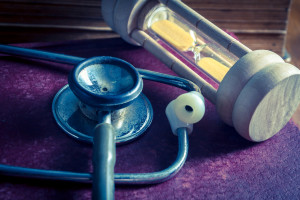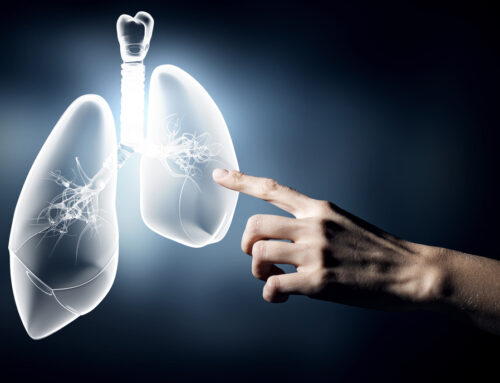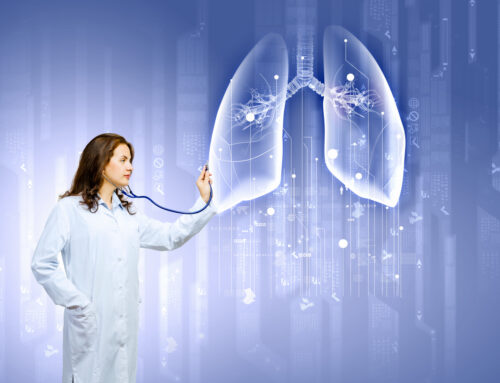In this week’s blog article Florida Lung, Asthma and Sleep Specialists (FLASS) bring you a basic list that could be life-saving to you or someone you love. The public has long been aware of the advantages of early detection in the treatment of various cancers such as breast cancer. Lung cancer is no exception.
Lung Cancer Early Warning Signs: Are You Ignoring Them?
Yet many times we hear that signs and symptoms were long present before the patient confided in his or her doctor. Sometimes we think the symptoms indicate we

Lung Cancer: Breathe Deeply and Check Your Symptoms
are just getting older or we are just virus-prone. This is not always the case. Sometimes your body is trying to tell you something serious is wrong.
Thus, we thought it was time to bring you a brief list of the early signs and symptoms of lung cancer.
It is also important to note that FLASS wants you to know that even the symptoms listed on our red letter list could be missing at the beginning of lung cancer. In fact, there “may be no symptoms at the onset of the disease.”
However when symptoms do present themselves at the beginning of lung cancer, they can include several problems. Lung Cancer can hide in the following nagging little signs and symptoms.
1. “It’s Just a Little Cough:” Of course many conditions can be indicated by a persistent cough that just doesn’t ever completely go away. This is true whether you smoke or not. You might even call this a smoker’s cough because it stays with you all the time with an increased amount of coughing or a little chest pain.
2. “I’m just really tired all the time and I get tired very quickly.” With the first stage of lung cancer, excess fatigue can be a symptom, as can an almost overwhelming feeling of weakness.

Pay attention to your breath.
3. “I keep getting sick every fall and winter. I barely get well and I get bronchitis again.” Experts say that recurring infections “like bronchitis or pneumonia, may be one of the signs of lung cancer.”
4. “I’m just getting a little short of breath.” Any type of breathing difficulties such as shortness or breath, wheezing or simply noisy breath (termed “stridor) can be indicative of a serious problem like lung cancer. Don’t forget to tell your doctor about this.
5. Appetite Changing? “Food doesn’t appeal to me anymore.” Did you know that loss of appetite can be a sign of many types of cancer? If you are experiencing an unplanned weight loss, you should tell your doctor about it. It could also be a symptom of lung cancer.
6. Blood or Rust in the Kleenex: You should never hide the fact you are coughing up blood from your doctor. If you are coughing up blood or brownish red spit, phlegm or sputum, please inform your primary health care provider.
Lung Cancer: Early Detection and CT Scanning Bring New Hope
Bruce E. Johnson, MD, ASCO Board Member, Director, Lowe Center for Thoracic Oncology, Dana-Farber Cancer Institute has stated, “Lung cancer is by far the leading cancer killer in the United States, with more than 157,000 deaths annually.”
He added, “One of our greatest challenges has been catching it early enough to treat it effectively.”
He also explained that there is now a Low Dose CT test that greatly enhances doctors’ ability to detect lung cancer through proper screening in its early stages. (By the way, such screening is covered by Medicare in most cases.)
We know that low-dose CT scans can reduce mortality rates of current or former heavy smokers by 20 percent.
However, we also want you to be aware that you can have lung cancer without ever having smoked a cigarette or 30 years after you have quit smoking.

Early Detection Means More Time for Treatment.
Lung Cancer: Are You At High Risk?
If you are in a high risk group, many experts strongly suggest that you check with your doctor about having a routine screening for lung cancer.
People no longer have to wait for obvious lung cancer symptoms to start.
At FLASS, we agree that new lung cancer screening methods are highly effective. We also hope awareness of these early signs and symptoms of lung cancer will help people learn to individually listen to the messages sent by their own bodies.
Likewise, we believe communicating with your doctor is essential to your good health.



